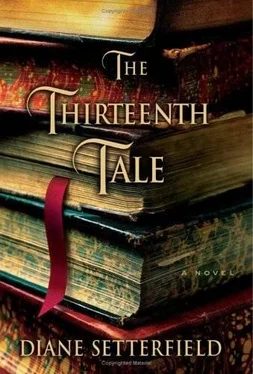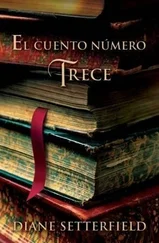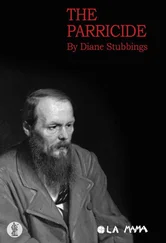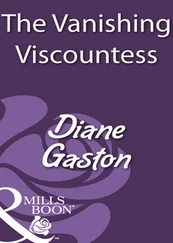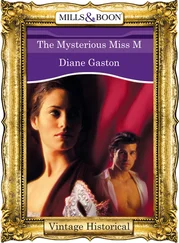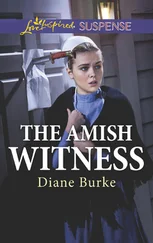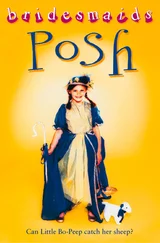When I was twelve, Father set me looking for lost books. We designated items lost when they were in stock according to the records but missing from their rightful position on the shelves. They might have been stolen but, more likely, they had been left in the wrong place by an absentminded browser. There were seven rooms in the shop, lined floor to ceiling with books, thousands of volumes.
"And while you're at it, check the alphabetization," Father said.
It was a job that would take forever; I wonder now whether he was entirely serious in entrusting it to me. To tell the truth it hardly mattered, for in undertaking it /was serious.
It took me a whole summer of mornings, but at the beginning of September, when school started, every lost book had been found, every misplaced volume returned to its home. Not only that, but-and in retrospect, this is the thing that seems important-my fingers had made contact, albeit briefly, with every book in the shop.
By the time I was in my teens, I was giving my father so much assistance that on quiet afternoons we had little real work to do. Once the morning's work was done, the new stock shelved, the letters written, once we had eaten our sandwiches by the river and fed the ducks, it was back to the shop to read.
Gradually my reading grew less random. More and more often I found myself meandering on the second floor. Nineteenth-century literature, biography, autobiography, memoirs, diaries and letters.
My father noticed the direction of my reading. He came home from fairs and sales with books he thought might be interesting for me. Shabby little books, in manuscript mostly, yellowed pages tied with ribbon or string, sometimes handbound. The ordinary lives of ordinary people. I did not simply read them. I devoured them. Though my appetite for food grew frail, my hunger for books was constant. It was the beginning of my vocation.
I am not a proper biographer. In fact I am hardly a biographer at all. For my own pleasure mainly, I have written a number of short biographical studies of insignificant personages from literary history. My interest has always been in writing biographies of the also-rans: people who lived in the shadow of fame in their own lifetime and who, since their death, have sunk into profound obscurity. I like to disinter lives that have been buried in unopened diaries on archive shelves for a hundred years or more. Rekindling breath from memoirs that have been out of print for decades pleases me more than almost anything else.
From time to time one of my subjects is just significant enough to arouse the interest of a local academic publisher, and so I have a small number of publications to my name. Not books. Nothing so grand. Just essays really, a few flimsy pages stapled in a paper cover. One of my essays-"The Fraternal Muse," a piece on the Landier brothers, Jules and Edmond, and the diary that they wrote in tandem-caught the eye of a history editor and was included in a hardback collection of essays on writing and the family in the nineteenth century. It must have been this essay that captured the attention of Vida Winter, but its presence in the collection is quite misleading. It sits surrounded by the work of academics and professional writers, just as though I were a proper biographer, when in fact I am only a dilettante, a talented amateur.
Lives-dead ones-are just a hobby of mine. My real work is in the bookshop. My job is not to sell the books-my father does that-but to look after them. Every so often I take out a volume and read a page or two. After all, reading is looking after in a manner of speaking. Though they're not old enough to be valuable for their age alone, nor important enough to be sought after by collectors, my charges are dear to me, even if, as often as not, they are as dull on the inside as on the outside. No matter how banal the contents, there is always something that touches me. For someone now dead once thought these words significant enough to write them down.
People disappear when they die. Their voice, their laughter, the warmth of their breath. Their flesh. Eventually their bones. All living memory of them ceases. This is both dreadful and natural. Yet for some there is an exception to this annihilation. For in the books they write they continue to exist. We can rediscover them. Their humor, their tone of voice, their moods. Through the written word they can anger you or make you happy. They can comfort you. They can perplex you. They can alter you. All this, even though they are dead. Like flies in amber, like corpses frozen in ice, that which according to the laws of nature should pass away is, by the miracle of ink on paper, preserved. It is a kind of magic.
As one tends the graves of the dead, so I tend the books. I clean them, do minor repairs, keep them in good order. And every day I open a volume or two, read a few lines or pages, allow the voices of the forgotten dead to resonate inside my head. Do they sense it, these dead writers, when their books are read? Does a pinprick of light appear in their darkness? Is their soul stirred by the feather touch of another mind reading theirs? I do hope so. For it must be very lonely being dead.
Although I have touched here on my very private preoccupations, I can see nonetheless that I have been putting off the essential. I am not given to acts of self-revelation; it rather looks as though in forcing myself to overcome my habitual reticence, I have written anything and everything in order to avoid writing the one thing that matters.
And yet I will write it. "Silence is not a natural environment for stories," Miss Winter told me once. "They need words. Without them they grow pale, sicken and die. And then they haunt you."
Quite right, too. So here is my story. I was ten when I discovered the secret my mother was keeping. The reason it matters is that it wasn't her secret to keep. It was mine.
My parents were out that evening. They didn't go out often, and when they did, I was sent next door to sit in Mrs. Robb's kitchen. The next-door house was exactly like ours but reversed, and the backwardness of it all made me feel seasick, so when parents' evening out rolled around, I argued once again that I was old enough and sensible enough to be left at home without a babysitter. I had no great hope of success, yet this time my father agreed. Mother allowed herself to be persuaded with only the proviso that Mrs. Robb would look in at half past eight.
They left the house at seven o'clock, and I celebrated by pouring a glass of milk and drinking it on the sofa, full of admiration at my own grandness. Margaret Lea, old enough to stay home without a sitter. After the milk I felt unexpectedly bored. What to do with this freedom? I set off on a wander, marking the territory of my new freedom: the dining room, the hall, the downstairs toilet. Everything was just as it had always been. For no particular reason, I was reminded of one of my baby fears, about the wolf and the three pigs. I'll huff and I'll puff and I'll blowjour house down! He wouldn't have had any trouble blowing my parents' house down. The pale, airy rooms were too insubstantial to resist, and the furniture, with its brittle delicacy, would collapse like a pile of matchsticks if a wolf so much as looked at it. Yes, that wolf would have the house down with a mere whistle, and the three of us would be breakfast in no time. I began to wish I was in the shop, where I was never afraid. The wolf could huff and puff all he liked; with all those books doubling the thickness of the walls Father and I would be as safe as in a fortress.
Upstairs I peered into the bathroom mirror. It was for reassurance, to see what I looked like as a grown-up girl. Head tilted to the left, then to the right, I studied my reflection from all angles, willing myself to see someone different. But it was only me looking back at myself.
Читать дальше
